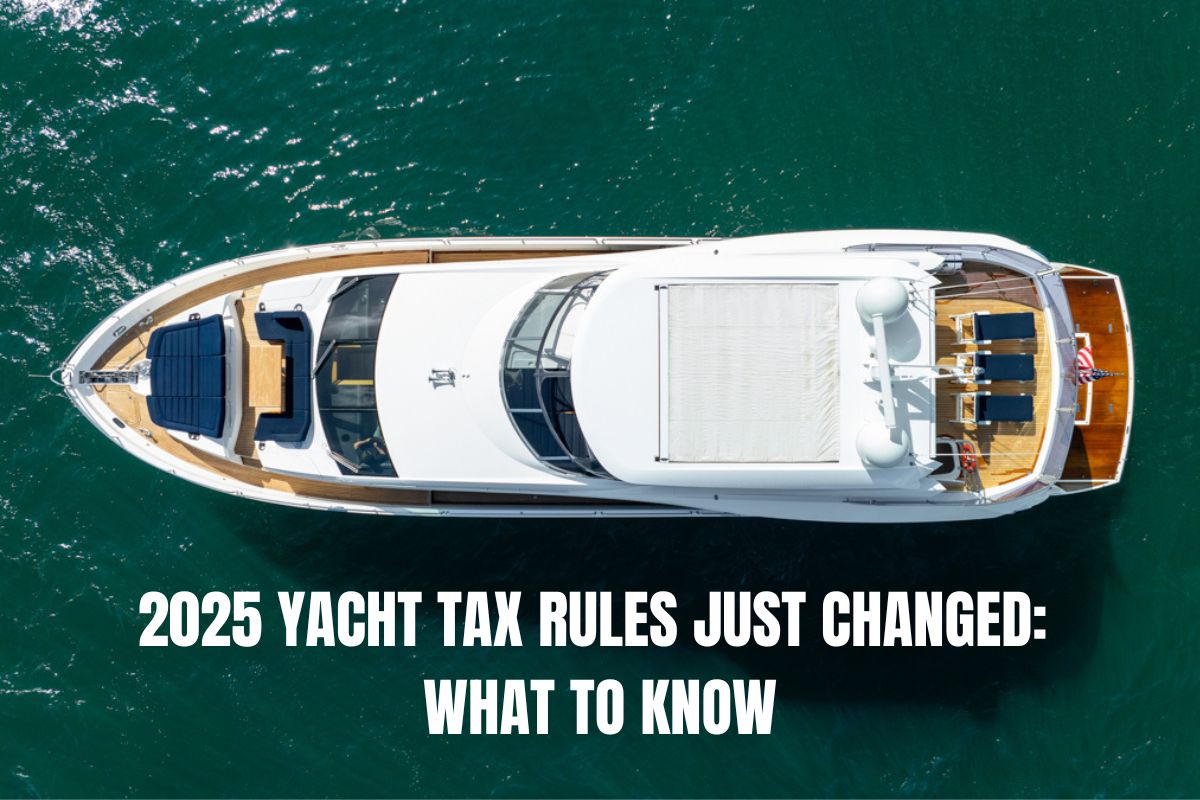On July 4, 2025, the “One Big Beautiful Bill” (OBBB) was officially signed into law, and it has brought major updates to the tax code that could significantly benefit buyers planning to use their yacht for business purposes. The most notable change is the reinstatement of 100 percent bonus depreciation for qualified purchases, along with an increase to the Section 179 deduction cap.
For those exploring yacht ownership tied to charter operations or other legitimate business uses, these changes may offer a powerful financial advantage. That said, every tax situation is unique, and the IRS holds luxury assets to a high level of scrutiny.
This article is for general awareness only. Please consult with a CPA or tax attorney before making any decisions.
The Power of Bonus Depreciation
Bonus depreciation allows businesses to write off the entire cost of eligible assets in the year they are placed in service. As of July 4, 2025, the new law reinstates 100 percent first-year depreciation for qualified property acquired and placed in service after January 19, 2025. This provision is scheduled to remain in effect through at least 2027.
For yacht owners who qualify, this means that a significant portion of the purchase price may be deductible in year one. For example, if a $3 million yacht is used for business purposes 70 percent of the time, the owner may be eligible to depreciate $2.1 million in the same tax year.
Expanded Section 179 Benefits
In addition to bonus depreciation, the bill increases the Section 179 deduction limit from $1 million to $2.5 million, with phaseouts beginning at $4 million. Section 179 is typically used for tangible equipment and certain real property improvements. In the right circumstances, it may apply to vessels used in active business operations.
While bonus depreciation is more commonly used for large-scale deductions, Section 179 offers added flexibility, especially for buyers with smaller investments or multiple assets.
Does Your Yacht Qualify for These Deductions?
To access either deduction, the yacht must be used for qualified business purposes more than 50 percent of the time. The most straightforward approach is placing the vessel in a professional charter program. This generates income and creates a clear business structure around the ownership.
Some owners may explore other business uses such as hosting corporate events, client entertainment, or branded media production. These uses can potentially qualify, but they come with more complex documentation requirements. Clear and accurate records are essential. So is working with a tax professional who understands the marine and charter industries.
Act While the Law Is in Effect
There are no retroactive changes to 2023 or 2024. These tax benefits apply only to qualifying purchases placed in service after January 19, 2025. With bonus depreciation set to remain at 100 percent through 2027, now is a key window for yacht buyers who are already planning to structure their ownership around a business.
It’s important to treat this as a business strategy, not a tax shortcut. Charter operations require thoughtful planning, careful scheduling, and experienced support. When done correctly, they can offset ownership costs while helping you take advantage of available tax deductions.
Final Thoughts
For those combining a passion for boating with a well-organized business plan, the updated depreciation rules create a unique opportunity in 2025. If you are ready to explore this route, we can help you identify vessels suited for charter, connect you with management partners, and direct you to tax professionals who specialize in these structures.
Disclaimer: This content is provided for informational purposes only. It is not tax, legal, or financial advice. Please consult a qualified tax advisor before making any purchase or investment decisions.
Sources:
Tax Code.
New Rules
BBB
